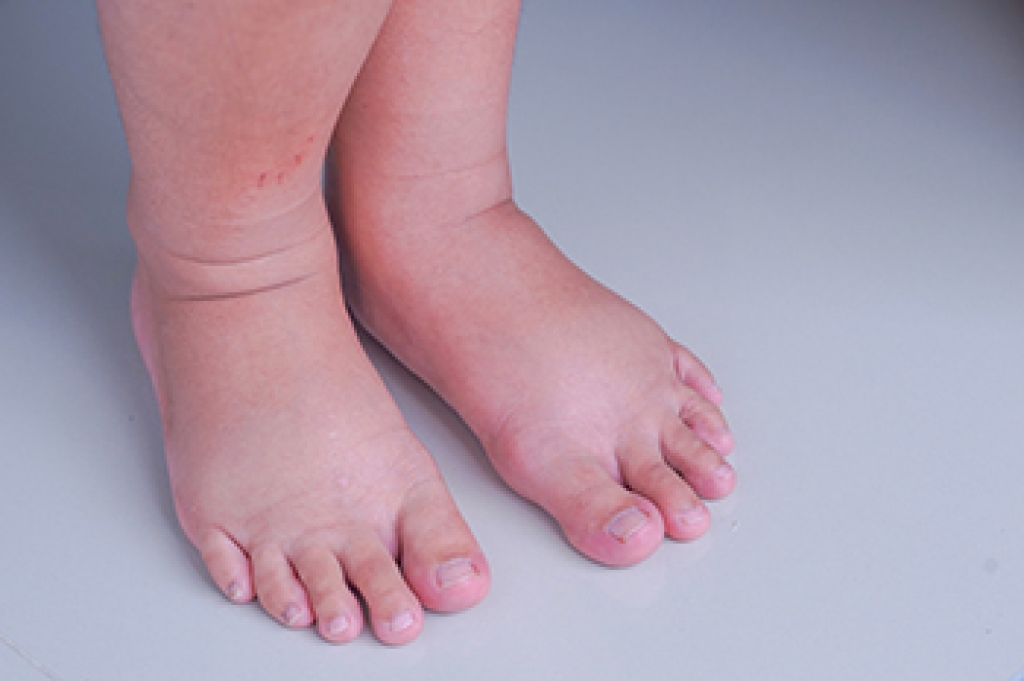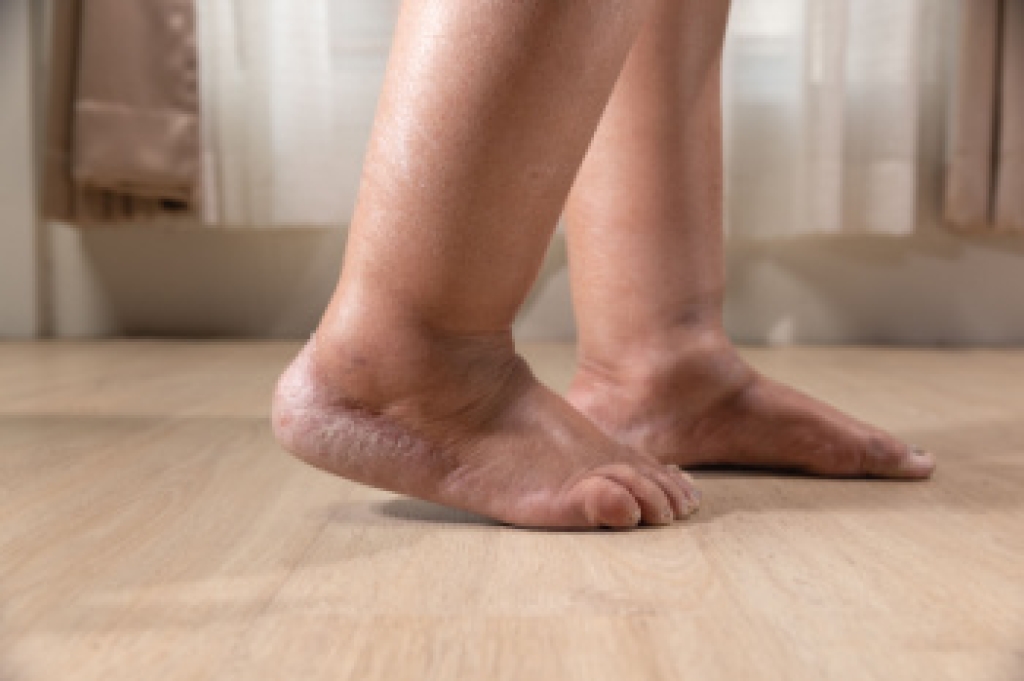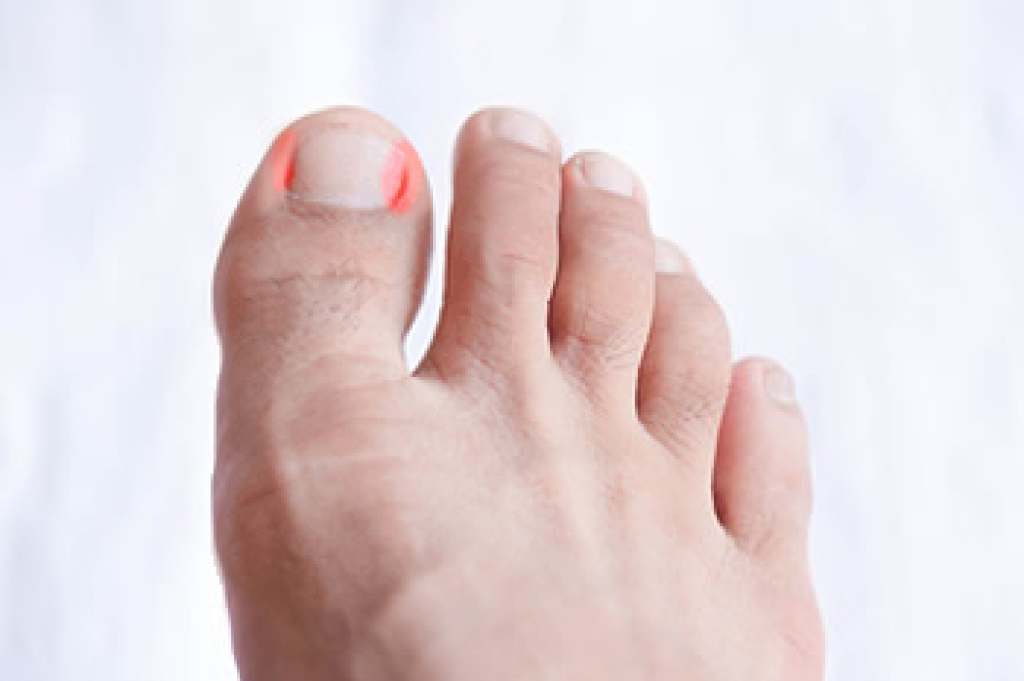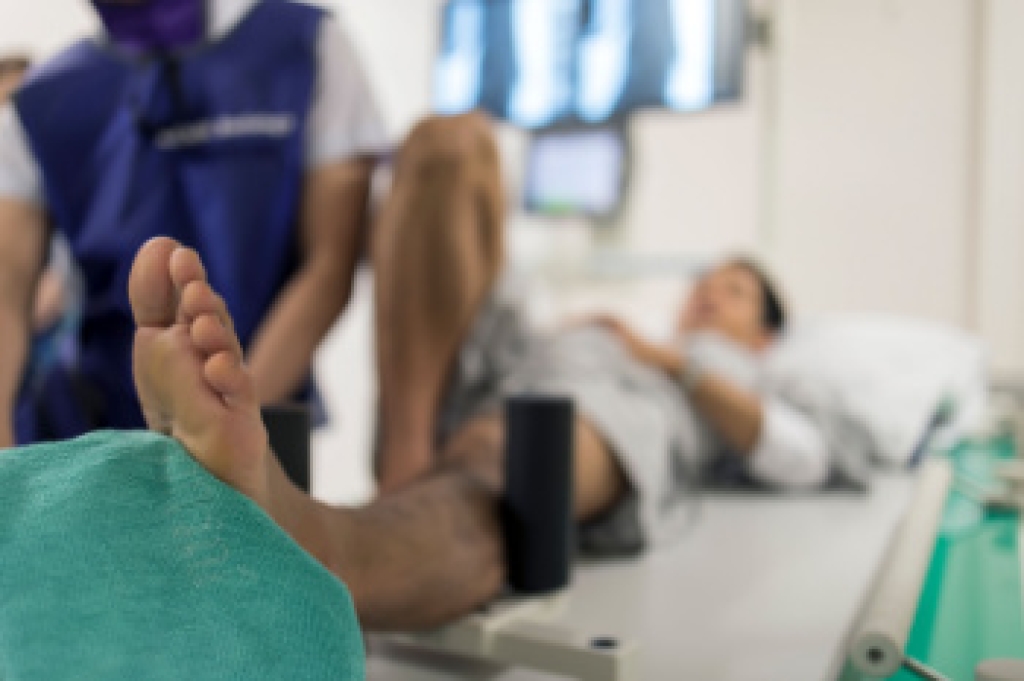
Swollen feet, also known as edema, are a common occurrence during pregnancy caused by increased blood volume, hormonal changes, and pressure from the growing uterus on blood vessels. This swelling often affects the ankles and feet, leading to discomfort, stiffness, and difficulty moving. Factors such as long periods of sitting or standing, high salt intake, and warm weather can worsen the condition. Relief can be found by staying hydrated, elevating the feet when possible, wearing supportive footwear, and avoiding prolonged sitting. A podiatrist can evaluate your foot health, provide guidance on proper shoes, suggest safe exercises, and recommend strategies to manage swelling while protecting joints and circulation. If your feet or ankles have become swollen during your pregnancy, it is suggested that you consult a podiatrist who can offer you additional relief and prevention strategies.
Pregnant women with swollen feet can be treated with a variety of different methods that are readily available. For more information about other cures for swollen feet during pregnancy, consult with Soorena Sadri, DPM from FootWorx Active Podiatry. Our doctor will attend to all of your foot and ankle needs.
What Foot Problems Can Arise During Pregnancy?
One problem that can occur is overpronation, which occurs when the arch of the foot flattens and tends to roll inward. This can cause pain and discomfort in your heels while you’re walking or even just standing up, trying to support your baby.
Another problem is edema, or swelling in the extremities. This often affects the feet during pregnancy but tends to occur in the later stages.
How Can I Keep My Feet Healthy During Pregnancy?
- Wearing orthotics can provide extra support for the feet and help distribute weight evenly
- Minimize the amount of time spent walking barefoot
- Wear shoes with good arch support
- Wear shoes that allow for good circulation to the feet
- Elevate feet if you experience swelling
- Massage your feet
- Get regular, light exercise, such as walking, to promote blood circulation to the feet
If you have any questions, please feel free to contact our office located in Fort Myers, FL . We offer the newest diagnostic and treatment technologies for all your foot care needs.




